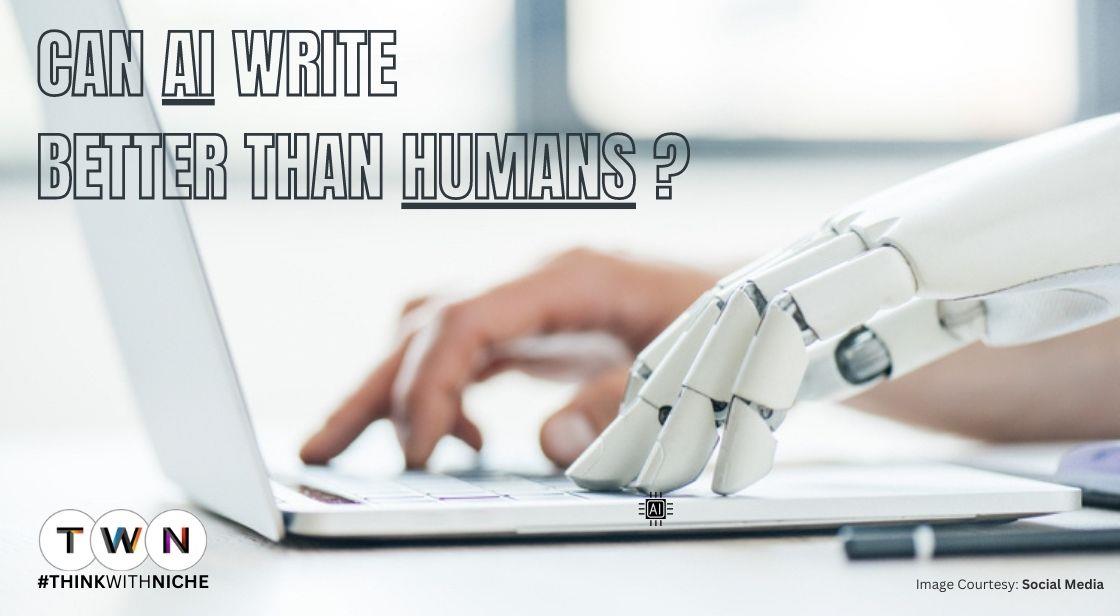Is AI Writing The Future? Exploring The Pros And Cons Of AI Content Writing

Blog Post
The world of technology is constantly evolving, and Artificial Intelligence (AI) is quickly becoming one of the most powerful technologies. AI has been used to create powerful algorithms that can help with everything from medical diagnoses to stock market predictions. Now, AI is being used to create content for websites, blogs, and other forms of digital media. AI content writing has the potential to revolutionize the content creation industry, but there are some potential drawbacks. In this article, we'll explore the pros and cons of AI content writing, and how it could shape the future of content creation.
Blog Flow:
- What is AI content writing?
- The Pros of Artificial Intelligence Writing
- The Major Cons of AI Writing
- The Future of AI Writing Tools and Platforms
- Editor's Final Take: Conclusion
Artificial Intelligence (AI) is becoming increasingly pervasive in almost every industry, from healthcare to entertainment. Its potential in writing, however, is particularly noteworthy and can be seen in the growing number of AI content writers. But what does the future of AI writing look like? By exploring the upsides and downsides of AI content writing, we can gain insight into whether AI is indeed the future of writing. On the one hand, AI writing can be incredibly efficient and cost-effective, allowing businesses to produce more content in less time. On the other hand, AI writing may lack the creativity and nuance of human-written content, making it difficult to produce truly engaging content. Ultimately, it's clear that AI writing has the potential to revolutionize the writing industry, but only if used in the right manner.
Is AI Writing The Future? Exploring the Pros and Cons of AI Content Writing
What is AI content writing?
Artificial Intelligence is basically a computer program that mimics human intelligence. AI content writing refers to algorithms that can produce written content. These algorithms use data to “learn” what is written, and then they can “write” a similar piece of content. AI content writing is one of the newest trends in the content marketing industry. The idea behind this type of writing is to create readable and understandable content that readers feel is “better” than the content that is written manually.
The Pros of Artificial Intelligence Writing
There are many advantages to using AI in the content writing process, including cost-effectiveness and increased efficiency in the creation of content. Furthermore, AI allows businesses to scale their content production without increasing headcount, which can prove particularly useful for companies that operate in the B2B sector. Let’s take a closer look at these advantages.
Cost-effectiveness of AI Writing Tools
AI tools are cost-effective in a number of ways. First, they can be used to optimize existing content, which means they don’t require you to create new content. Second, they don’t require any additional staff members to operate, making them particularly useful for B2B companies.
Increased Efficiency in Content Generation
It can take a long time to produce high-quality content manually, which is why many businesses opt to outsource content creation. However, outsourcing is costly and can pose a risk to content quality. By using AI to produce content, companies can increase efficiency and provide content at a lower cost. This is particularly useful for companies that create a lot of content, such as eCommerce businesses.
The Major Cons of AI Writing
While AI can be incredibly useful, it isn’t without its flaws. In fact, AI suffers from a number of drawbacks, including a lack of creativity and the risk of producing inaccurate content. Let’s take a closer look at each of these issues.
Lack of Creativity
AI tools are programmed to follow specific rules and algorithms, meaning they aren’t particularly creative. Because AI tools use data to “learn” what has been written, they can struggle with new or unusual topics. Furthermore, AI tools are designed to follow a certain style and tone, meaning they won’t produce high-quality content for every industry.
Risk of Inaccuracies in Content Context
Inaccuracies are a major issue with automated content, particularly in B2B content. While AI tools can produce accurate facts, they can struggle to understand the context behind them. Misunderstandings can lead to inaccurate content that could negatively impact a business’s reputation.
The Future of AI Writing Tools and Platforms
AI is still in its infancy, meaning there is a lot of room for improvement. As AI evolves, it will likely become more creative and accurate, meaning it could become a legitimate replacement for human-written content. However, this will take time, meaning businesses should carefully consider the advantages and drawbacks of AI tools before incorporating them into their content strategy. While AI tools are not yet fully developed, there are already some companies that offer AI writing services. One of the most notable examples is a company called Automated Insights, which offers an AI-powered platform called Wordsmith. This platform allows businesses to create “sports-themed custom stories” based on real data. This is an incredibly exciting development in the AI space and is just one example of how AI tools are evolving. There are also many AI-powered content-writing apps that are designed to produce engaging content. These apps are particularly useful for B2C companies and can help businesses create a more personalized customer experience.
Editor's Final Take: Conclusion
Artificial Intelligence is being used more and more across a variety of industries and is becoming increasingly prevalent in the writing space. While this technology has a number of advantages, it also comes with a few drawbacks. As AI evolves and becomes more advanced, these issues may be resolved, meaning AI could become a legitimate replacement for human-written content. For now, businesses should carefully consider the advantages and drawbacks of AI tools before incorporating them into their content strategy.
You May Like
EDITOR’S CHOICE












